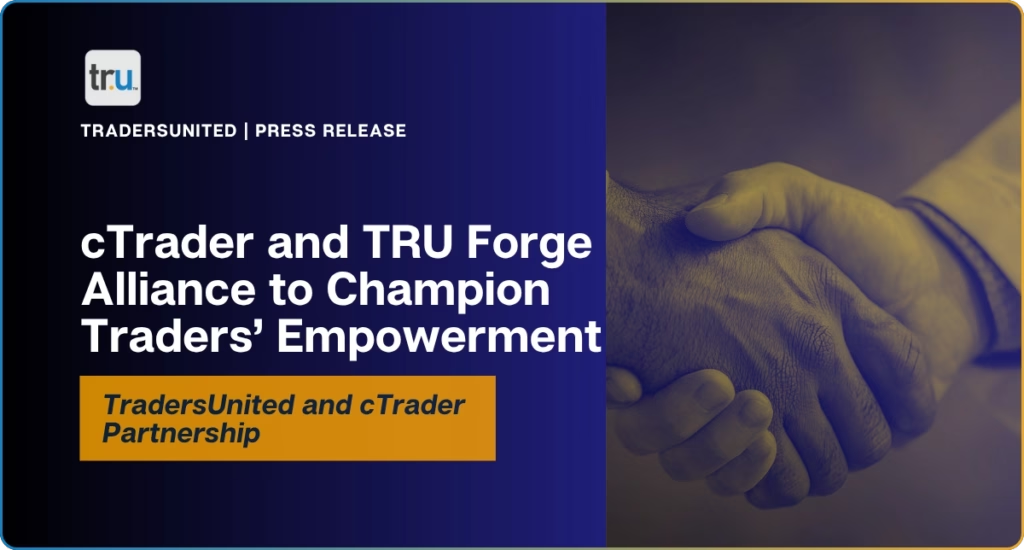Financial advisors are not new in the investment scene – they’ve been actively assisting individuals to find profitable and suitable investment opportunities for their circumstances.
However, this is not a perfect world.
Unethical financial service providers exist to exploit the desperation of unsuspecting individuals. This is much true in the South African financial market – especially since the country has been experiencing extended era of wealth inequality.
In this TRU Insight, we’ll explore the nitty-gritty of financial advisors. From their operations to their FSCA’s regulation and red flags to avoid, this article will uncover everything you need to know about South African financial investors.
This is not to paint financial advisors in South Africa with some dirty brush. Instead, it’s aimed at educating you about the potential risks surrounding financial advisors despite all the potential they exude.
What Are Financial Advisors?
Financial advisors are more than just your trade managers who help you find profitable instruments and execute your trades.
At its core, financial advising is the practice of promoting financial literacy to individuals who aim to become financially comfortable – whether from investing to money management.
Here are the primary services offered by financial advisors:
- Basic Investing for people who want to save more money.
- Retirement Planning to ensure a comfortable life for an individual and their family after retirement.
- Tax Management for individuals to save money from paying taxes, which can be done through tax returns and tax deductions.
- Debt Management for debtors to pay their debts efficiently or for individuals to avoid debts in the future.
- Offshore Investment for investors looking for a broader range of investment opportunities.
- Post-retirement Planning for retired individuals to generate passive income from their retirement savings.
Other types of financial advising services include tax consulting, medical aid, short-term insurance, life insurance, and estate planning.
While not all financial advisors handle your money, they still can influence you to make money-involved decisions. Due to this, the operations and advice of financial advisors should be regulated and authorized by a reputable regulator.
Are Financial Advisors Regulated by the Financial Sector Conduct Authority
According to the Financial Advisory Intermediary Service Act (FAIS Act), all services that influence the monetary decisions of the South African public should are considered a financial service.
Financial advising – which involves saving money, debt management, and investment decisions – falls under such classification.
Thus, the Financial Sector Conduct Authority (FSCA) must authorize and oversee all the operations and advice of financial advisors.
Red Flags to Avoid When Looking for a Financial Advisor
Again, this is not a perfect world. Even in the practice of financial advising, such unethical practices exist.
No, scratch that. Unethical practices are more prevalent in the financial markets as unsuspecting investors are emotional – either too greedy, enthusiastic, or scared.
When you look for a financial advisor, here are the common red flags to look out for to avoid falling into the pit of unethical or scam operation of financial service providers.
No Control nor Access to Investments
When you hire a financial advisor to manage investment on your behalf, you should still be able to access and control all the processes and strategies.
Without control or access to your investment, you risk having your hard-earned money floating freely on the market. Or worse, it’s not in the market at all.
This presents an opportunity for your financial advisor to run wild with your money – or run off with it.
Vague Fee Structure
Let’s address the elephant in the room – hiring a financial advisor comes with a hefty price tag.
After all, they’re professionals who studied and mastered the intricacies of the financial market.
However, a reputable financial advisor shall always be upfront and transparent with their pricing or fee structure.
The common unethical practice of financial advisors is endorsing a financial service at an X USD price, often attracting their market as it stays within their budget. However, get an invoice from them and notice it is filled with overwhelming amounts of hidden fees.
Lack of Credentials
Trusting your money to someone is already a hard job in itself. Now imagine trusting it to someone you’re uncertain whether they’ll do a good job or drag your hard-earned money down the drain.
Some financial advisors may exude a sense of credibility as they represent a particular company. However, that alone is insufficient to ensure that your investment is really used in good faith.
Remember, an advisor who’s affiliated with a certain company often raises the concern of potential conflict of interest. They provide advice aimed at making you invest in a specific financial product, and in return, they receive a commission or reward from the company.
Pushes High Commission or Guaranteed Returns Investment Products
When a financial advisor becomes too pushy, they blur the line between being a salesperson and an advisor who’s supposed to be on your interest.
While it’s understandable when the advisor encourages you to take his recommendations, they should never become too pushy on it. After all, they’re among the ones who understand your investment capacity.
If you heard, “this is the best investment product ever”, “you’ll pay your debt in just a month by doing this”, or “you can retire comfortably by doing this”
They’re trying to romance you by trying to provide a pseudo-solution for your needs.
Read more: What Are Investment Ponzi Schemes: South African Financial Terrorists: Should You Trust Financial Advisors in South Africa? [2025 Update]How to Report Financial Advisors Unethical Practices
South Africa has long faced challenges with wealth inequality, leading to a growing number of individuals turning to financial advisors to help grow their investments.
Unfortunately, this surge has also increased cases of unethical practices by some financial advisors.
If you suspect or experience misconduct, it is essential to take the proper steps to report such behavior to the Ombud for Financial Services Providers in South Africa.
Here is the Ombud’s contact information.
| Postal Address | PO Box 41, Menlyn Park, 0063 |
| Contact Number | 0860 663 274 |
| [email protected] | |
| Website | https://www.ombudcouncil.org.za/ |
For reporting such instances of unethical practices of financial advisors, ensure you do the following:
- Document Evidence: Keep detailed records of all communication, agreements, and transactions with the financial advisor.
- Attempt Resolution: Address your concerns with the advisor or their company to seek an amicable resolution.
- Verify Registration: Ensure the advisor is registered with the Financial Sector Conduct Authority (FSCA) or other regulatory bodies.
How to Become a Financial Advisors in South Africa?
Financial advisors provide clients with personalized financial planning and advice.
Their responsibilities span from more than providing mere recommendations, they must assess your financial needs and goals and offer investment and savings strategies tailored specifically for you.
Here are the steps you must take before you can legitimately provide a financial advice in South Africa:
Obtain the Required Education and Qualifications
To qualify as a financial advisor, you need more than just your educational degree. There are various qualification examinations to ensure your suitability for the job.
Here are the three primary educational requirements needed:
- Minimum Education: A National Senior Certificate (matric) is essential.
- Financial Planning Qualification: Obtain a qualification in financial planning or a related field, such as a diploma or degree in finance, economics, or accounting.
- Regulatory Exams (RE): Pass the Regulatory Examination set by the Financial Sector Conduct Authority (FSCA), such as the RE5 exam for representatives.
Gain Industry Experience
After getting your certification, your next step is to immerse yourself in the field to gain industry experience.
Consider joining a financial services firm or brokerage to gain hands-on experience or work under a licensed financial advisor as a trainee or junior representative.
Remember, the knowledge and experience you have from the certification programs are just a single step. You have to get your hands on the field to become a reliable financial advisor.
Only then you can develop key skills and attributes that would help you perform your responsibilities more efficiently.
Consider Joining Professional Bodies
As they always say, you must learn from the people who came before you.
Joining a professional organization helps you hit two birds with one stone – you enhance your knowledge and credibility while growing your network.
Here are the two popular organizations you can consider joining in:
- Financial Planning Institute of Southern Africa (FPI): Offers certifications like the Certified Financial Planner (CFP®) designation.
- Insurance Institute of South Africa (IISA): Focuses on insurance-related financial advice.
Register with the FSCA
To practice legally, financial advisors must register with the Financial Sector Conduct Authority (FSCA) as a representative or a financial services provider (FSP).
Submit your qualifications, proof of experience, and RE5 exam results to the FSCA. Additionally, comply with the Financial Advisory and Intermediary Services (FAIS) Act requirements.

















